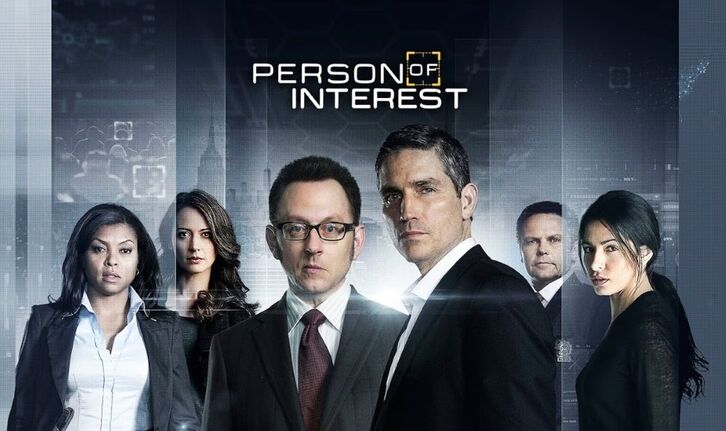Throwback Thursday - Unmasking the Machine: Person of Interest
25 May 2023
Person of Interest Reviews TBTA little review of Person of Interest and my 4 favourite episodes. What were your favourites?
Part 1: Series Review
"Person of Interest" is an intricately woven tapestry of technology, philosophy, and humanity, conceived and executed with finesse by creator Jonathan Nolan. Revolving around an enigmatic billionaire software genius, Harold Finch (Michael Emerson), and a former CIA operative, John Reese (Jim Caviezel), the show uncovers a surreal post-9/11 world, depicting the omnipresence of artificial intelligence, surveillance, and the delicate balance of morality and privacy rights.
The series is a blend of procedural drama and serialized storytelling, tackling a "number of the week" format while gradually unfurling overarching narratives. Finch's creation, "The Machine," a superintelligent AI that predicts crimes before they occur, serves as the linchpin, setting the series apart from conventional crime dramas. The Machine's creation raises profound questions about morality, determinism, and the role of technology in society, touching on the nuances of existentialism.
The show's strength lies in its characters, richly drawn and flawlessly portrayed. Emerson's Finch is a masterclass in nuanced acting, while Caviezel's Reese is an emblem of stoic heroism. Characters like Root (Amy Acker), an anarchist hacker turned believer in The Machine, and Shaw (Sarah Shahi), a pragmatic former assassin, add depth and dynamism to the narrative.
"Person of Interest" is a brilliant exploration of techno-paranoia, the concept of precrime, and human connection. It's filled with moments of heart-stopping suspense, emotional resonance, and thought-provoking themes, offering a transcendent viewing experience that grows increasingly relevant in our technologically advancing world.
Part 2: Review of "The Contingency" (Season 2, Episode 1)
"The Contingency" represents a compelling shift in the series' narrative trajectory, introducing a new level of complexity as Finch is abducted and Reese must rely solely on The Machine's cryptic instructions to find him. This episode uncovers a layered depiction of The Machine's capabilities and autonomy, instilling an eerie sense of intelligence and consciousness in the AI.
The episode offers a deep exploration into the characters' vulnerabilities and strengths, notably Reese's relentless commitment to Finch. Caviezel's performance is at its peak here, embodying desperation and determination simultaneously. Meanwhile, Emerson excellently portrays Finch's stoic acceptance of his grim predicament, adding a sense of gravitas to his character.
A gripping storyline, brilliant performances, and a startling ending featuring the introduction of Root as a formidable antagonist establish "The Contingency" as a pivotal episode in the series.
Part 3: Review of "If-Then-Else" (Season 4, Episode 11)
"If-Then-Else" is a brilliant hour of television that pushes the boundaries of narrative structure. The episode focuses on The Machine performing simulations to determine the best course of action for a dangerous situation, with the narrative toggling between potential realities. The outcome is a seamless blend of drama, humor, and tragedy that sets this episode apart.
This episode delves deeper into The Machine's character, imbuing it with a sense of humanity and empathy. We see the AI running simulations in mere seconds, each one a testament to its 'care' for the team. This exploration of AI sentimentality combined with the nail-biting suspense of the bank heist plot adds a profound emotional depth.
"If-Then-Else" showcases the true essence of "Person of Interest", affirming the show’s innovation in storytelling and its remarkable ability to personify an AI entity.
Part 4: Review of "Deus Ex Machina" (Season 3, Episode 23)
"Deus Ex Machina" is a turning point for "Person of Interest." The tension culminates as the rival AI, Samaritan, comes online, establishing a new order. This episode excels in its portrayal of a looming dystopia, backed by flawless performances and high-stakes storytelling.
In the face of impending doom, characters are forced to make difficult choices. Reese, Finch, Shaw, and Root must adapt and make sacrifices, revealing the deep bond and trust among them. Meanwhile, the emergence of Samaritan underscores the series' recurring theme of surveillance and control.
"Deus Ex Machina" ends with a chilling cliffhanger that resets the status quo. It's a thrilling, impactful episode that changes the direction of the series and emphasizes the show's propensity for unpredictability.
Part 5: Review of "The Day the World Went Away" (Season 5, Episode 10)
"The Day the World Went Away" serves as a culmination of the series' emotional arcs and a heartbreaking farewell to a beloved character. As Finch's cover is blown, the characters are thrust into a dire situation that tests their resilience and loyalty.
This episode shines in its emotional weight. It beautifully illustrates the profound bond between Finch, Reese, Root, and Shaw. Acker delivers an outstanding performance as Root, portraying her fierce loyalty to Finch and The Machine with a heartbreaking vulnerability.
The episode's poignant climax redefines the series, introducing The Machine in a new voice and role. As a pivotal episode in the final season, "The Day the World Went Away" is a testament to "Person of Interest's" blend of emotionally resonant storytelling and high-octane action, leaving a lasting impact on the viewer.
Sign Up for the SpoilerTV Newsletter where we talk all things TV!






